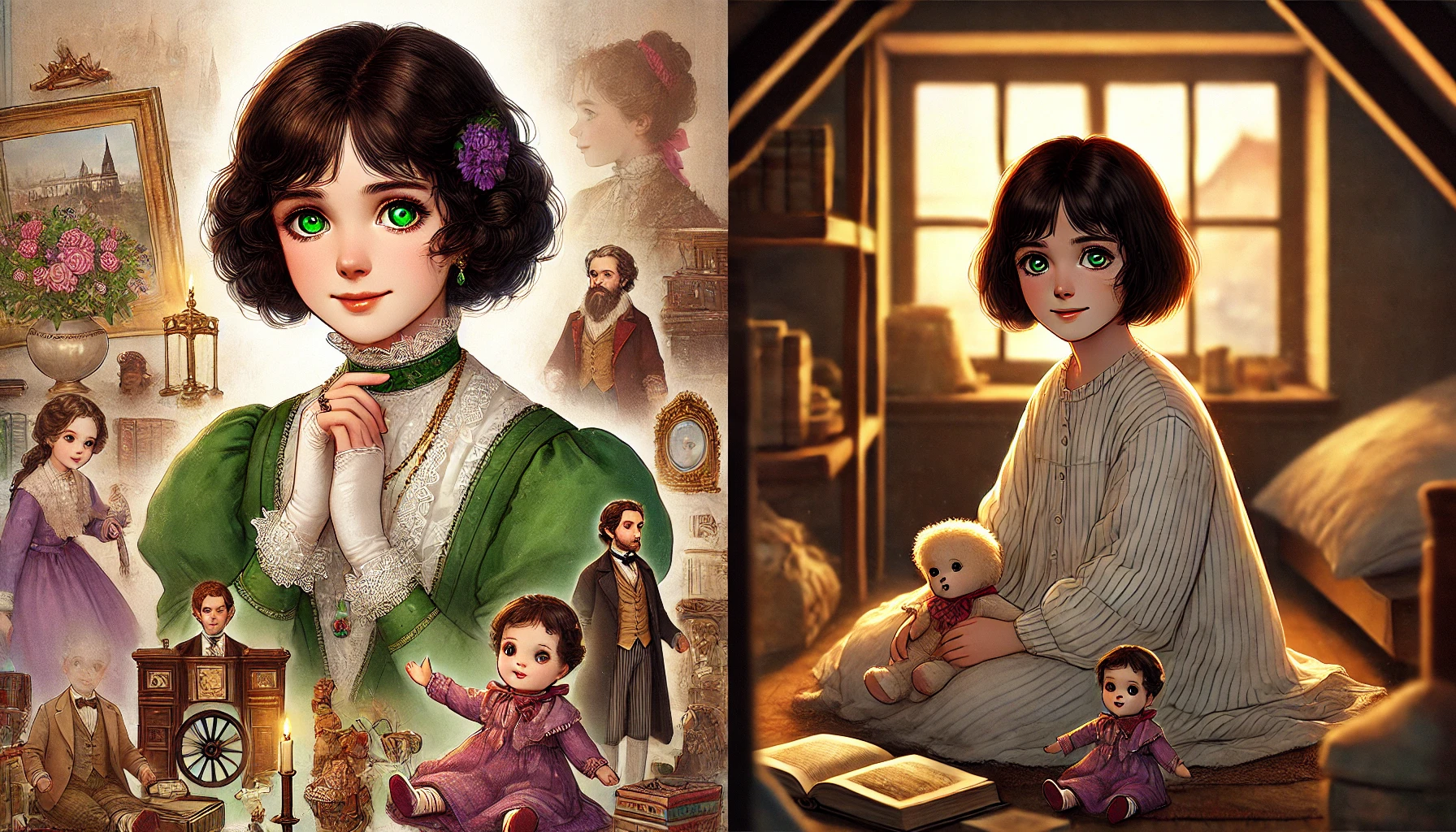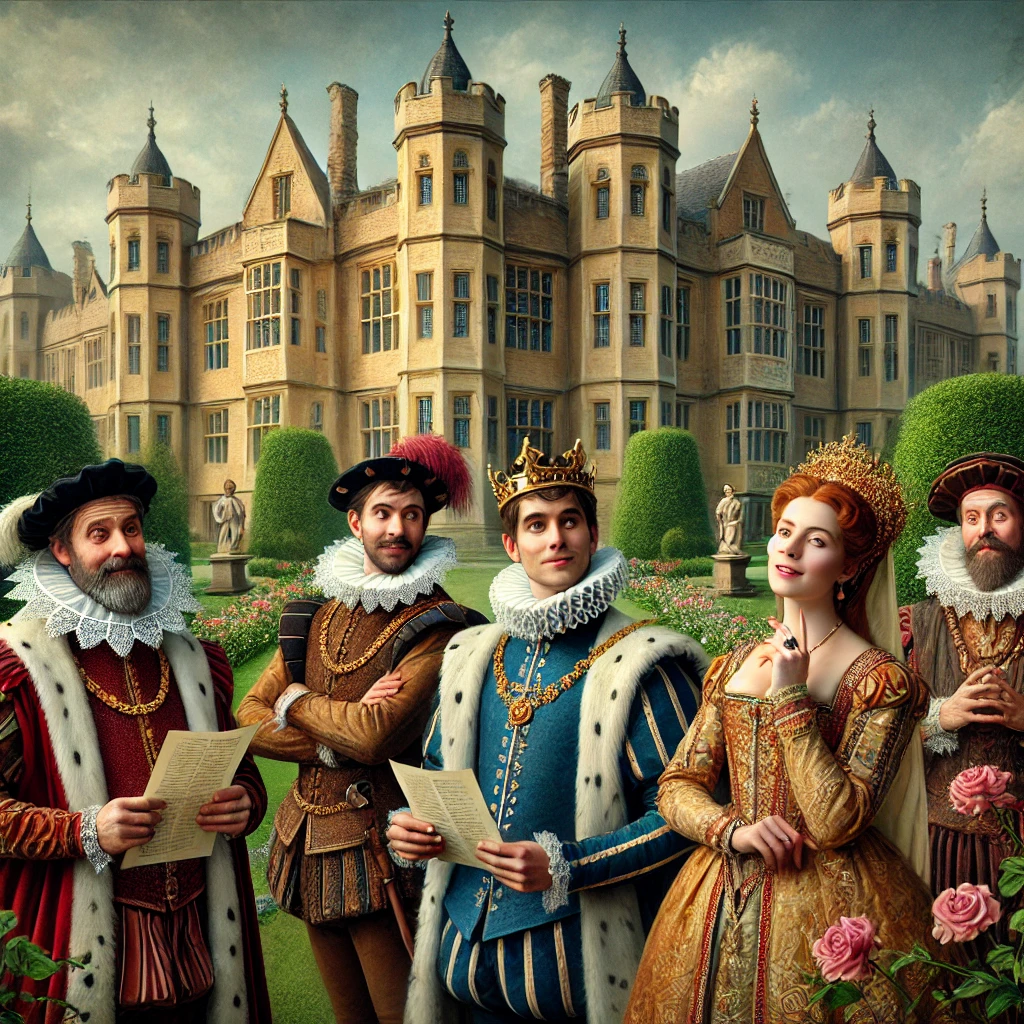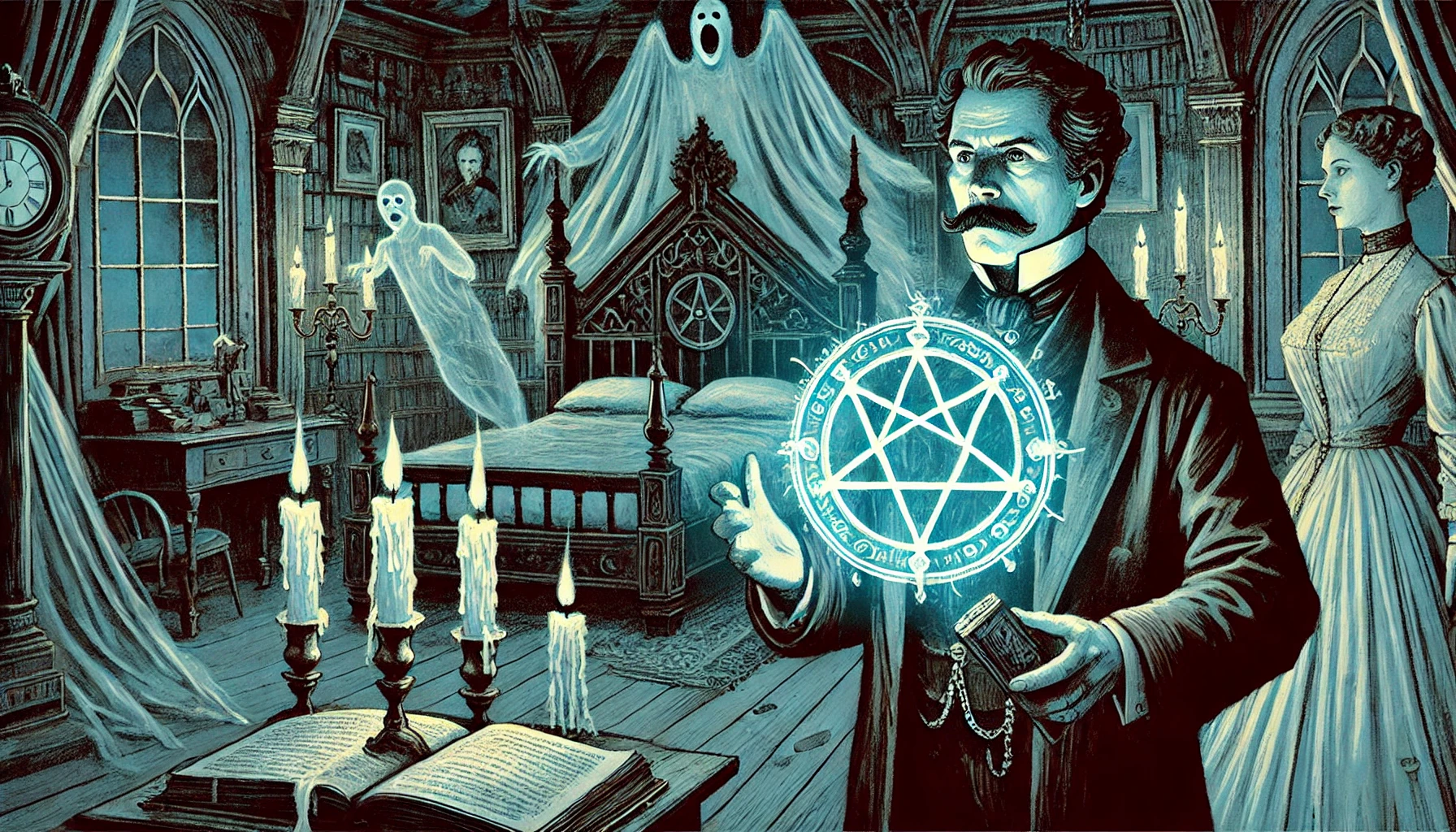A Room with a View is a 1908 novel by E. M. Forster, a classic of English literature. It is a love story that explores themes of social conventions, personal growth, and the contrast between the repressive Edwardian society and the liberating power of travel and experience. The story primarily follows Lucy Honeychurch, a young English woman, during her travels to Italy and later in England, where she encounters love, freedom, and self-discovery. Forster skillfully critiques societal norms while championing individuality and emotional honesty.
Plot Summary
Lucy Honeychurch, a young woman from Surrey, England, arrives in Florence with her older cousin Charlotte Bartlett, her chaperone. They stay at the Pension Bertolini, a modest establishment filled with British tourists. Upon their arrival, the cousins are disappointed to find their rooms lack the promised views of the River Arno. In a bold and unexpected offer, Mr. Emerson, a kind but unconventional man, suggests that Lucy and Charlotte take his and his son George’s rooms, which do have views. Charlotte, scandalized by the Emersons’ forwardness, initially refuses, but Lucy, intrigued by the father and son’s directness, wishes to accept. Eventually, after much protest from Charlotte, they swap rooms, setting the stage for a series of life-altering encounters.
The next day, Lucy begins to explore Florence, eager to experience its art and culture. During an outing to the church of Santa Croce, she runs into Mr. Emerson and George. Mr. Emerson speaks freely, his frankness surprising Lucy. He talks about life and love in ways that challenge her sheltered upbringing, and Lucy finds herself both disturbed and fascinated by his ideas. George, on the other hand, is quiet and brooding, watching Lucy with an intensity that unnerves her.
As Lucy continues to explore Florence, she is accompanied by Miss Lavish, a free-spirited woman who prides herself on seeing “the real Italy.” However, it is a more private moment that transforms Lucy’s journey. During a day trip to the countryside, Lucy witnesses a violent altercation between two men. Overcome by the sight of blood, she faints and is caught in George Emerson’s arms. This moment of intimacy, so sudden and raw, deeply affects both Lucy and George. Later that day, in a field of violets, George kisses Lucy impulsively. She is startled and confused by her own emotions, and Charlotte, upon discovering the incident, insists that they leave Florence at once.
Back in England, Lucy returns to her familiar world at Windy Corner, her family’s home. She tries to bury the memory of Florence, convincing herself that her emotions were nothing more than fleeting impulses. Her family, unaware of what transpired in Italy, is eager for her to settle down. Soon after, Lucy becomes engaged to Cecil Vyse, a man who epitomizes everything proper and refined in Edwardian society. Cecil is intellectual, aloof, and more interested in possessing Lucy as an idealized figure than truly understanding her. Though Lucy tries to convince herself that she loves Cecil, she feels increasingly stifled by his condescending attitude and the rigid expectations of their society.
The arrival of the Emersons in Lucy’s village further complicates her life. They move into a nearby cottage, having been recommended it by none other than Cecil, who finds the Emersons amusingly bohemian. Lucy, however, is horrified by their proximity and the emotions they stir within her. George’s presence forces Lucy to confront the truth she has been avoiding—that her engagement to Cecil is a mistake, and that her feelings for George are deeper than she has allowed herself to acknowledge.
During a tennis party at Windy Corner, George kisses Lucy again, this time more passionately and deliberately. The kiss breaks the emotional dam Lucy had been holding in place, and she is left in turmoil. Charlotte, who has been staying with the Honeychurches, tries to manage the situation, but her interference only adds to Lucy’s confusion. George confronts Lucy about her engagement to Cecil, urging her to be true to herself and not settle for a life of repression. Despite his words resonating with her, Lucy denies her feelings and continues with her engagement.
However, Cecil’s actions soon reveal the incompatibility between them. His arrogance and disdain for the simple pleasures of life, as well as his dismissive attitude toward Lucy’s family and friends, become unbearable. In a final act of frustration, Lucy breaks off the engagement, but she still refuses to admit her love for George. She tells herself that she will go to Greece with the Miss Alans, two elderly women friends, to escape the emotional entanglements of home.
Before she can leave, Mr. Emerson confronts Lucy once more. In a deeply emotional conversation, he urges her to embrace her feelings and live authentically, rather than hiding behind societal expectations. He speaks of love and passion in a way that breaks through Lucy’s final defenses. At last, Lucy admits to herself that she loves George, and that running away from her emotions is not the answer.
Lucy cancels her trip to Greece and, without telling anyone, marries George. In the final scene, the two are back in Florence, staying in the same rooms with a view that sparked the beginning of their story. They are free from the constraints of the society that once bound them, content to live in the moment, and embrace their love without fear or hesitation.
Their union is not just a personal victory but a triumph over the oppressive forces of convention and propriety that had once threatened to shape Lucy’s life. Together, Lucy and George symbolize a new way of living—one driven by authenticity, passion, and the courage to defy societal norms. They have chosen each other not because it was expected, but because it was right.
Main Characters
Lucy Honeychurch: The protagonist, Lucy is a young woman from the upper-middle class who initially conforms to the expectations of her class and gender. Throughout the novel, she grapples with societal pressures and her own desires for independence and passion. Her journey toward self-awareness and autonomy forms the heart of the story.
George Emerson: A passionate and unconventional young man, George is both brooding and insightful. His openness about emotions and rejection of societal norms starkly contrasts with Lucy’s repressed world. His presence challenges Lucy to question her life and her role in society.
Charlotte Bartlett: Lucy’s older, prudish cousin and chaperone during her trip to Italy. Charlotte is overly concerned with propriety and decorum, often stifling Lucy’s impulses and desires. Her conservative attitudes represent the societal restraints that Lucy is struggling to break free from.
Cecil Vyse: Lucy’s fiancé for a portion of the novel, Cecil is an arrogant, intellectual man who epitomizes the rigid upper-class society that Forster critiques. His relationship with Lucy is distant and based on propriety rather than love or passion.
Mr. Emerson: George’s father, an unconventional and outspoken man, Mr. Emerson plays a crucial role in Lucy’s transformation. His directness and kindness are both refreshing and challenging to the more rigid characters around him.
Mr. Beebe: The local clergyman, Mr. Beebe is an amiable character who, while more flexible than others, still represents the traditional societal structures that Lucy must navigate.
Theme
Individuality vs. Social Conformity: The novel explores the tension between personal desires and societal expectations. Lucy’s struggle to break free from the rigid norms of Edwardian England reflects the broader theme of individualism versus social conformity. Her eventual embrace of her emotions and desires signifies personal liberation.
Class and Social Hierarchy: Forster critiques the class system, especially through characters like Cecil and Charlotte, who are entrenched in their social status. George and his father, representing a freer, more progressive mindset, contrast sharply with these characters, showing the stifling nature of class-based expectations.
The Power of Travel and Experience: The motif of travel, particularly the contrast between Italy (representing freedom, passion, and authenticity) and England (representing repression and tradition), is central to the novel. Lucy’s experiences abroad act as a catalyst for her personal growth.
The Role of Nature: Nature often reflects the emotional states of the characters, especially Lucy. The landscapes of Italy symbolize freedom and sensuality, while the stifling interiors of English houses mirror Lucy’s repressed inner life. The motif of the “view” also symbolizes Lucy’s expanding consciousness.
Writing Style and Tone
Forster’s writing in A Room with a View is elegant and subtle, marked by irony and wit. His prose is highly descriptive, particularly in the sections set in Italy, where he paints vivid pictures of the landscape and its emotional resonance. His use of dialogue is sharp, revealing the inner conflicts and societal norms that govern the characters’ lives. Forster’s style is deceptively simple but layered with nuance, as he gently critiques the world of Edwardian England while allowing his characters, particularly Lucy, to evolve organically.
The tone of the novel shifts between satire and earnestness. Forster is often playful, particularly in his portrayal of the more repressive characters like Cecil and Charlotte, whom he mocks for their rigidity. At the same time, there is a sincere exploration of personal freedom and the human capacity for growth. The novel’s tone is ultimately hopeful, as Forster advocates for the triumph of individuality and emotional truth over societal constraint.
We hope this summary has sparked your interest and would appreciate you following Celsius 233 on social media:
There’s a treasure trove of other fascinating book summaries waiting for you. Check out our collection of stories that inspire, thrill, and provoke thought, just like this one by checking out the Book Shelf or the Library
Remember, while our summaries capture the essence, they can never replace the full experience of reading the book. If this summary intrigued you, consider diving into the complete story – buy the book and immerse yourself in the author’s original work.
If you want to request a book summary, click here.
When Saurabh is not working/watching football/reading books/traveling, you can reach him via Twitter/X, LinkedIn, or Threads
Restart reading!








